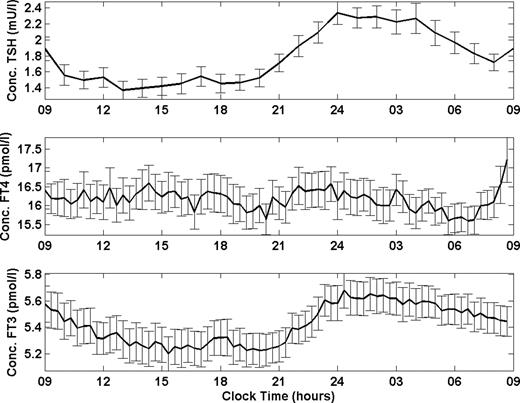Hi guys,
I've begun Levothyroxine treatment since last Friday, 50mcg a day, taken in the morning.
I'm finding that it functions in a way that I didn't expect. I take it in the morning and around 10h later I'm awake like I haven't been for years. This is the effect I was hoping to get from TRT. But why would it kick in so late?
As far as I can tell the half-life is 7 days which should provide relatively stable levels. I'd think the effect would be more even but it's kicking in around 5-6 PM. Until then I'm maybe slightly better but that's when I become 100% and that lasts until I fall asleep.
Any input? @Cataceous @Vince
All I can think of.. is something weird with the liver randomly converting a large batch of T4 to T3 late in the day. It doesn't make much sense.
I've begun Levothyroxine treatment since last Friday, 50mcg a day, taken in the morning.
I'm finding that it functions in a way that I didn't expect. I take it in the morning and around 10h later I'm awake like I haven't been for years. This is the effect I was hoping to get from TRT. But why would it kick in so late?
As far as I can tell the half-life is 7 days which should provide relatively stable levels. I'd think the effect would be more even but it's kicking in around 5-6 PM. Until then I'm maybe slightly better but that's when I become 100% and that lasts until I fall asleep.
Any input? @Cataceous @Vince
All I can think of.. is something weird with the liver randomly converting a large batch of T4 to T3 late in the day. It doesn't make much sense.















